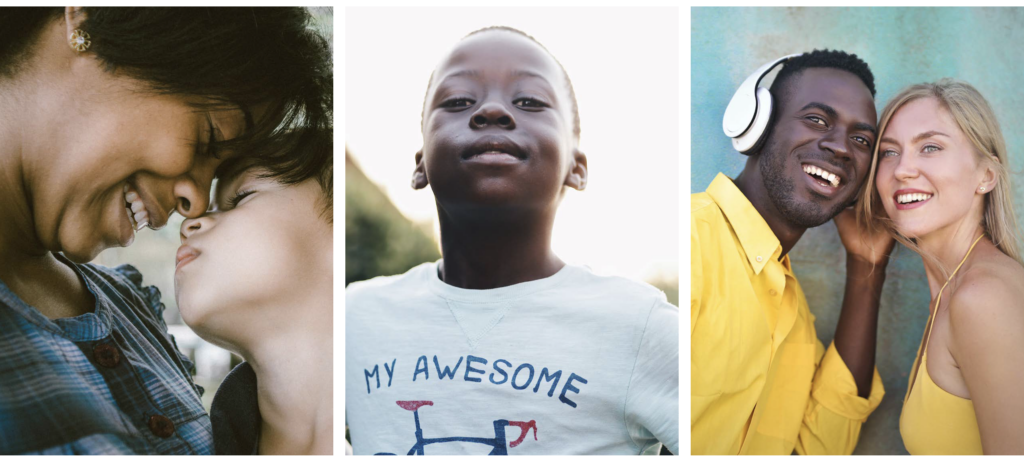Dear friends,
It’s my pleasure to hand over this month’s newsletter greeting to my esteemed colleague, HealthBegins Senior Associate, Kathryn Jantz. Enjoy!
Best,

Rishi Manchanda, MD, MPH.
Last Wednesday marked two notable events in my career.
The First was the launch of the Medicaid Food Security Network (MFSN), a collaborative effort to accelerate the design and adoption of strategies for Medicaid to address widespread food and nutrition insecurity in low-income children and youth. Benefits Data Trust, Share Our Strength, and HealthBegins created the network to help advocates engage, influence, and partner with state Medicaid programs and Medicaid-serving systems to implement effective strategies to address the full spectrum of families’ food needs. The initiative aims to maximize enrollment in the Supplemental Nutrition Assistance Program (SNAP) and Supplemental Special Nutrition Program for Women, Infants, and Children (WIC) and strengthen networks of local food resources. We ask every one of you in our health equity community to be a part of the effort.
Why this, and why now? Medicaid represents a nationwide infrastructure with a presence in every community across the country and a direct line of communication to the roughly 85 million Medicaid enrollees. This includes a large population of children under age 3 who may not regularly interact with any other system. These children are not in school and often not in daycare. Medicaid agencies, managed care organizations, and healthcare providers have an opportunity to support all Medicaid enrollees to meet their food needs and, by doing so, reduce health care costs and improve health outcomes. If the healthcare system does not become a true partner in addressing their food needs, who will?
The Second, last Wednesday marked one month into my father’s retirement after 45 years as a practicing physician. This milestone is intimately related to my work on the MFSN, and I’ll explain why.
My father, Richard Jantz, grew up with a mother who had only completed high school and a father who had only finished eighth grade. By combining the privilege of his birth (being born a White man) with sheer grit, sleepless nights, and mowing endless lawns, he went on to graduate college and medical school and became an interventional cardiologist. As a subspecialist, his job was to provide treatment and guidance about a very specific part of the body, but he has always recognized that you can’t treat one part in isolation. You have to treat the whole person, and different people need different levels of support. As a result, his appointments were often twice as long as the scheduled slot (sorry to everyone who spent an inordinate time in his waiting room). At night, when he worried about patients, he didn’t talk about the mechanics of their heart but their dogs, children, and families—many of whom he remembered by name. He was the kind of doctor who would show up at a funeral to give condolences whenever he could. He intuitively knew that health equity means meeting a patient where they are and doing everything you can to give them a hand up.

A thousand conversations with my father set me on the path of being a public health social worker, ultimately leading me to the opportunity to help develop the MFSN. My dad didn’t celebrate his retirement, but his work—and the way he did it—is worth celebrating. His approach to medicine is embedded in my approach to public health, and I hope that all of you who are part of the MFSN will join me in thinking of the people we serve as neighbors and friends and creating strategies that address needs but also support dignity and humanity.
I share with you some of my father’s central tenets and how they translate into advice for the MFSN and health equity work broadly. Because all of us working in health care and policy have a role to play.
-
Don’t mistake the normal growing pains of change with failure.In Matthew Desmond’s book Poverty, By America, he writes, “Doing the right thing is often a highly inconvenient, time-consuming, even costly process, I know. I try, fail, and try again. But that’s the price of our restored humanity.” Healthcare staff trying to figure out how to embed social-needs screening into already full workloads, payers trying to design new benefits, and government staff trying to advance equity under demands of budget neutrality would likely agree that doing this work is inconvenient, time-consuming, and costly. But my father taught me that we should not confuse the discomfort of change and challenge with the discomfort of going the wrong way. Figuring out how we can best partner healthcare systems with food systems will be uncomfortable, and we will navigate that discomfort together with a shared belief that we can do things better.
-
Be wary of conflicts of interest, both your own and of the system around you. My father takes issue with the phrase “the business of medicine” because he feels these are separate things and often at odds. Throughout his career he often found himself trying to untangle those places where we have confused the needs of the health system or the provider with the needs of the patient. This confusion is not benign. A deep body of research shows that financial incentives have deep subconscious and conscious impacts on how we behave. For all of us working within or adjacent to health care, we must acknowledge and grapple with these conflicts of interest. In Medicaid, both providers and managed care plans are successful under the current systems and structures, meaning they risk financial losses with structural change. Identifying those obstacles is key to overcoming them. In my dad’s day-to-day work, he often heard “You can’t do that,” when what was meant was, “That takes too long,” or, “That isn’t reimbursed” — not that it isn’t allowable. We Upstreamists must keep sight of our ultimate goal, to improve health and wellbeing and not be distracted by the conflicting incentives of the current system. We created these incentives and rules, and we can change them. In fact, that’s what the MFSN is for.
-
Food is more than fuel. Just as healthcare interventions are more complex than a pill, nutrition is more than just getting the right macronutrients. My father loves to cook and in his first month of retirement has more than once shown up at my house with all the ingredients for an elaborate meal. He spent his childhood going to his grandmother’s house in Andover, Kansas, for Sunday supper. (Fun fact: for much of my father’s childhood, Grandma didn’t have an indoor toilet and drew baths in a cast iron tub in the kitchen.) In How the Other Half Eats, Priya Fielding-Singh situates feeding within the context of mothering and illuminates how food and care are intertwined. The best food is not necessarily the perfectly designed protein bar, but the meal eaten with family and friends that supports connection and community. As we think about Medicaid policy opportunities, I challenge all of us to consider policies that will support both our bodies and souls and that situate our food needs within the context of our broader lives.
The change the MFSN seeks to build is transformational. It represents both policy change and culture change, cultivating a new norm by which addressing the food needs of children and families is a priority of the health system. Yet the MFSN is only as good as the people who make it up. And now, that can include you.
I am grateful to my courageous colleagues who helped bring the MFSN into reality—and to all of you who will now support and magnify its impact by:
-
Leveraging the tools and resources we develop to engage your state Medicaid agency, Medicaid managed care organizations, and providers around strategies to address food;
-
Joining our quarterly meetings to share your learnings and support other stakeholders doing this work; and
-
Collaborating with the MFSN where we can make a collective impact.
Congrats, Dad! I’m proud to carry on your work in a different form. (Note to self: print this out for Dad, who does not have LinkedIn).
Best,
Kathryn Jantz
Featured content
HealthBegins Brief: Addressing Climate Health Inequities With The Community Health Needs Assessment
This HealthBegins Policy and Practice Brief invites every healthcare organization to immediately begin addressing the impact of climate change on health at the community level and with community participation.
Immigration Enforcement in Healthcare Settings: How to Prepare and Respond
Many of our healthcare partners are asking how they should prepare for potential ICE encounters on their premises and respond in the interim to concerns among patients and staff. These questions, answers, and resources provide some guidance.
To Build Effective Social-Care Investments, Change the Narrative About Them
The lesson for everyone working at the intersection of health and social care is this: to build sustainable partnerships that effectively address health-related social needs, we need to examine and challenge our underlying perceptions of value.



